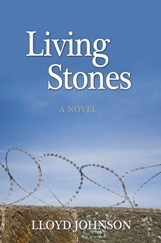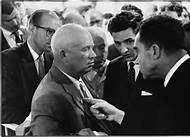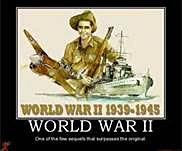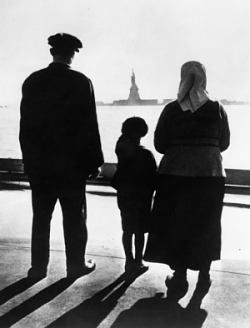How many American bodies had he sent home in the course of his career? Neal Hudson had not kept count, but he figured it must be close to fifty.
 So begins my novel, Distant Thunder, the story of Neal Hudson, a U.S. Foreign Service professional. Distant Thunder, like several of my books, deals with a Foreign Service officer, the official name for a U.S. diplomat. Most Americans have no idea our government has a Foreign Service. Thus, I often create a scene in my novels in which the officer has to explain what he or she does.
So begins my novel, Distant Thunder, the story of Neal Hudson, a U.S. Foreign Service professional. Distant Thunder, like several of my books, deals with a Foreign Service officer, the official name for a U.S. diplomat. Most Americans have no idea our government has a Foreign Service. Thus, I often create a scene in my novels in which the officer has to explain what he or she does.
On rare visits to the States, strangers he’d meet in a hotel or a car rental would ask what he did for a living. He’d fumble around trying to explain. “I’m a consular officer.”
Raised eyebrows. “Oh?”
“A Foreign Service officer.”
“In the military, you mean?”
No, Neal says, and explains about overseas Americans and how Foreign Service officers notify loved ones when an American citizen dies overseas. They see that bodies are sent home. They visit imprisoned Americans and American children living with non-American parents. They perform more mundane tasks, acting as a notary in foreign countries and renewing passports.
Neal serves as a consular officer. Other specialities include political, economic, administrative, and security, to name a few.
Like professionals everywhere—firefighters, police officers, the military, nurses—Foreign Service officers are proud of their service and can never fully explain it to the uninitiated. The interweaving of tragedy, comedy, and an occasional happy ending with a touch of the exotic provides infinite plots for story telling.





 At the beginning of this era, the United States led her allies to defeat the Axis powers, Germany and Japan. Wars dramatically change the social fabric, and World War II, so immense and terrible, was bound to spawn changes that reverberate today.
At the beginning of this era, the United States led her allies to defeat the Axis powers, Germany and Japan. Wars dramatically change the social fabric, and World War II, so immense and terrible, was bound to spawn changes that reverberate today. It is this period which becomes one of the characters of Quiet Deception.
It is this period which becomes one of the characters of Quiet Deception. As a consular officer working for the U.S. State Department, I interviewed foreign nationals for both temporary visas and visas for permanent residence in the United States. Interviews for legal immigration were rewarding, often dealing with those who were elated at reaching their dream of living in the United States. These immigrants often had family who had immigrated to the United States before them. Others had earned their visas because their job skills were needed by an American employer.
As a consular officer working for the U.S. State Department, I interviewed foreign nationals for both temporary visas and visas for permanent residence in the United States. Interviews for legal immigration were rewarding, often dealing with those who were elated at reaching their dream of living in the United States. These immigrants often had family who had immigrated to the United States before them. Others had earned their visas because their job skills were needed by an American employer. In Distant Thunder, Ms. O’Barr has melded a personal journey of searching and restoration with a candid, point-blank look at American culture and faith. Okay, that’s been done before. A lot. But what makes this book unique is the author’s perspective on America through the eyes of Americans who have spent a considerable portion of their adult lives outside of America. . . .
In Distant Thunder, Ms. O’Barr has melded a personal journey of searching and restoration with a candid, point-blank look at American culture and faith. Okay, that’s been done before. A lot. But what makes this book unique is the author’s perspective on America through the eyes of Americans who have spent a considerable portion of their adult lives outside of America. . . .

 The wired world offers myriad opportunities never before available to anyone with an Internet connection, not just writers. The problem is that we can never take advantage of all these opportunities. We can never upload all the books to our Kindle or Nook that we want/need to read, skim all the online magazines, keep up with the news downloaded to our iPad, create meaningful comments on all the relevant blogs, or appear regularly on Facebook and other social media.
The wired world offers myriad opportunities never before available to anyone with an Internet connection, not just writers. The problem is that we can never take advantage of all these opportunities. We can never upload all the books to our Kindle or Nook that we want/need to read, skim all the online magazines, keep up with the news downloaded to our iPad, create meaningful comments on all the relevant blogs, or appear regularly on Facebook and other social media.
 My stories often begin with the death of a loved one or of a relationship. Perhaps it’s a subconscious wrestling with my father’s death when I was thirteen.
My stories often begin with the death of a loved one or of a relationship. Perhaps it’s a subconscious wrestling with my father’s death when I was thirteen.